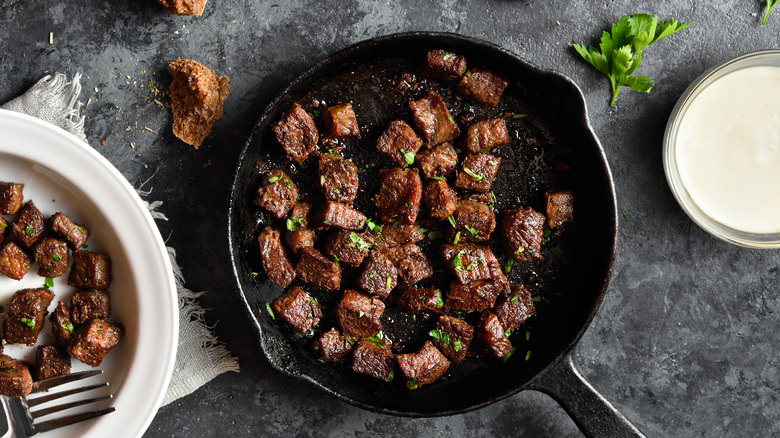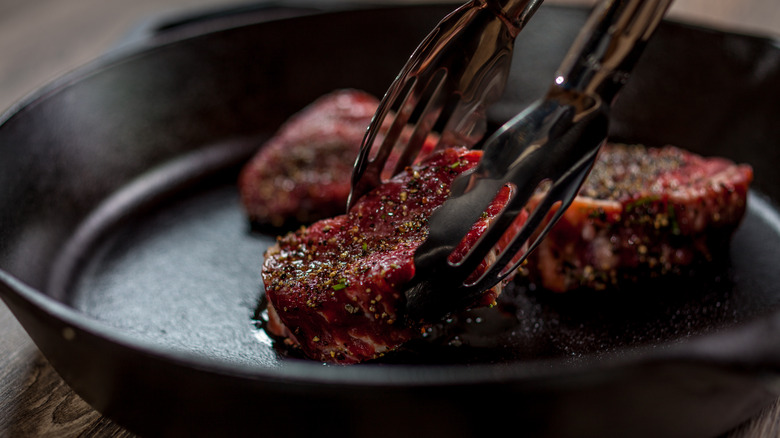Never Cook Marinated Meat In Your Cast Iron Skillet. Here's Why
Cast iron cookware is a favorite tool for most chefs for good reason: It provides excellent heat retention along with the non-stick qualities of a well-seasoned pan, and you can't beat that sear. While cast iron is not as high-maintenance as some would have you believe, there are a few non-negotiables to taking care of this type of cookware. For example, marinating meats in your cast iron skillet should be avoided at all costs. We spoke with Michael Lomonaco, chef at Porter House Bar and Grill, to find out more about why you should never cook marinated meat in your cast iron skillet.
According to Chef Lomonaco, "The acidic ingredients react with cast iron and may leave your food with a metallic taste as the acidic ingredients [draw] out the metal and will break down the well-seasoned surface of a cast iron pan." Avoiding cooking acidic foods will not only help preserve the flavors of what you're cooking but will also keep your cast iron skillet seasoned and functional for a long time to come.
How to cook flavorful meat in your cast iron skillet
If you take care of it properly, your cast iron cookware will last forever. Just because cooking marinated meats (or anything acidic) is not recommended in a cast iron skillet, that doesn't mean that you can't still impart a lot of flavor to your meat. Chef Lomonaco has a brilliant solution for this dilemma, "Dry rub or dry brined foods that haven't been seasoned with acidic ingredients will do wonders being cooked in cast iron." If you're missing it, Chef Lomonaco recommends that you add acidity back in via a spritz of lemon or a splash of vinegar after you've pulled your meat off of the skillet.
If you're coming across this tip after you've learned not to cook acidic marinated food in your cast iron skillet the hard way, do not fret — it's extremely easy to restore your cast iron to fighting form. You'll need some oil, an extra hot oven (heated to 450 degrees Fahrenheit), and a little bit of patience for re-seasoning. The goal is to build up layers of heat-sealed oil in your pan, which takes about an hour per layer. It's completely worth the extra elbow grease, because a well-cared for cast iron skillet can last for generations.

